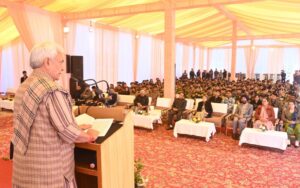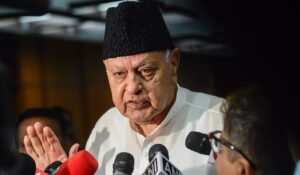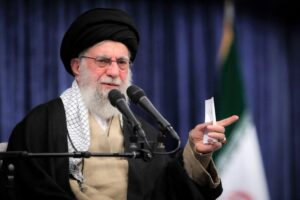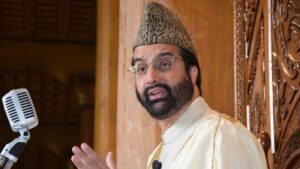Delegation Led by Mirwaiz Umar Farooq to Meet JPC Chief Jagdambika Pal Over Waqf Act Revisions
cintyreportere January 22, 2025 0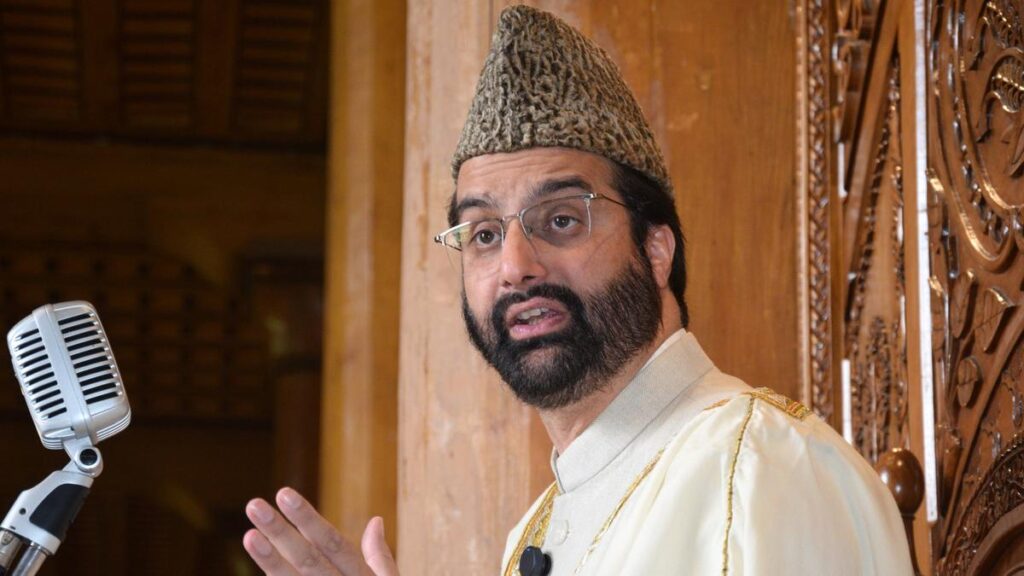
A delegation led by Mirwaiz Umar Farooq, the head of the Mutahida Majlis-E-Ulema (MMU) and the Mirwaiz of Kashmir, will meet Jagdambika Pal, Chairman of the Joint Committee of Parliament, on Friday. The meeting is centered around the Waqf (Amendment) Bill. The MMU had earlier requested time to meet with Pal to voice their serious concerns about the proposed amendments to the Waqf Act. The delegation aims to emphasize its strong reservations about certain provisions in the bill, which they believe could significantly impact the management and autonomy of Waqf properties. They are particularly concerned about the welfare of Muslim communities, especially the underprivileged, in the context of these amendments.
Mirwaiz Umar Farooq, speaking to Gulistan News from New Delhi, elaborated on the purpose of his delegation’s meeting with the Joint Parliamentary Committee (JPC) Chairman, Jagdambika Pal, regarding the Waqf (Amendment) Bill. The meeting is scheduled for Friday morning at 9:30 AM, where the delegation aims to present its concerns about the bill’s proposed amendments.
In his interview, Mirwaiz explained that the delegation, which includes religious leaders such as Maulana Rehmatullah, G.R. Hami, Dr. Latef Alkindi, Aga Hassan, and Mufti Azam, is deeply concerned about the far-reaching consequences the bill could have on the autonomy of Waqf properties and the welfare of Muslim communities in Jammu, Kashmir, and Ladakh.
Key Points Highlighted by Mirwaiz Umar Farooq:
1. Threat to Autonomy of Waqf Boards: Mirwaiz pointed out that the proposed amendments could severely affect the autonomy of the Waqf boards, leading to increased government control. He emphasized that the current provisions in the bill, if enacted, would undermine the ability of religious bodies to independently manage their properties, which are crucial for community welfare.
2. Impact on Muslim Communities: The Mirwaiz expressed concern over how the amendments might have a detrimental impact on the social and economic welfare of underprivileged Muslim communities. He highlighted that Waqf properties currently play a significant role in providing education, healthcare, and support for the disadvantaged. Any change to the management structure could jeopardize these services and further marginalize these communities.
3. Government’s Influence: A major concern voiced by Mirwaiz is the increased government influence in the functioning of Waqf properties under the amended bill. He mentioned that such control could result in political interference, which would make it difficult for religious and community leaders to ensure that the properties serve their intended purpose of benefiting the poor and marginalized groups.
4. Preservation of Religious Interests: The delegation plans to advocate for the preservation of religious interests and the right of religious leaders to oversee the management of Waqf properties. Mirwaiz argued that the current system allows for greater accountability and ensures that the resources are being used in line with the needs of the community. The bill’s changes, according to him, could shift control into the hands of those with little understanding of religious practices and community needs.
5. Legal and Social Implications: Mirwaiz also pointed out the legal and social implications the Waqf Amendment Bill could have, especially in terms of legal ownership and control over Waqf properties. He noted that the bill might enable land grabbing or mismanagement of Waqf assets, leading to long-term consequences for the religious and socio-economic fabric of the region.
Next Steps:
Mirwaiz and the MMU delegation plan to engage in constructive discussions with the JPC, urging lawmakers to reconsider the amendments. They aim to secure safeguards that would protect the autonomy of Waqf boards and ensure that the welfare of the Muslim community remains the top priority.
Mirwaiz also assured Gulistan News that they would continue to pursue the matter with all stakeholders, including the central government, to ensure that the voices of the people are heard and that the interests of the community are safeguarded.This development is seen as part of the ongoing efforts by the Mutahida Majlis-E-Ulema (MMU) to influence decisions that affect the rights and welfare of Muslim communities in the region. The meeting with the JPC Chairman is expected to be a significant moment in the ongoing dialogue around the Waqf (Amendment) Bill.


